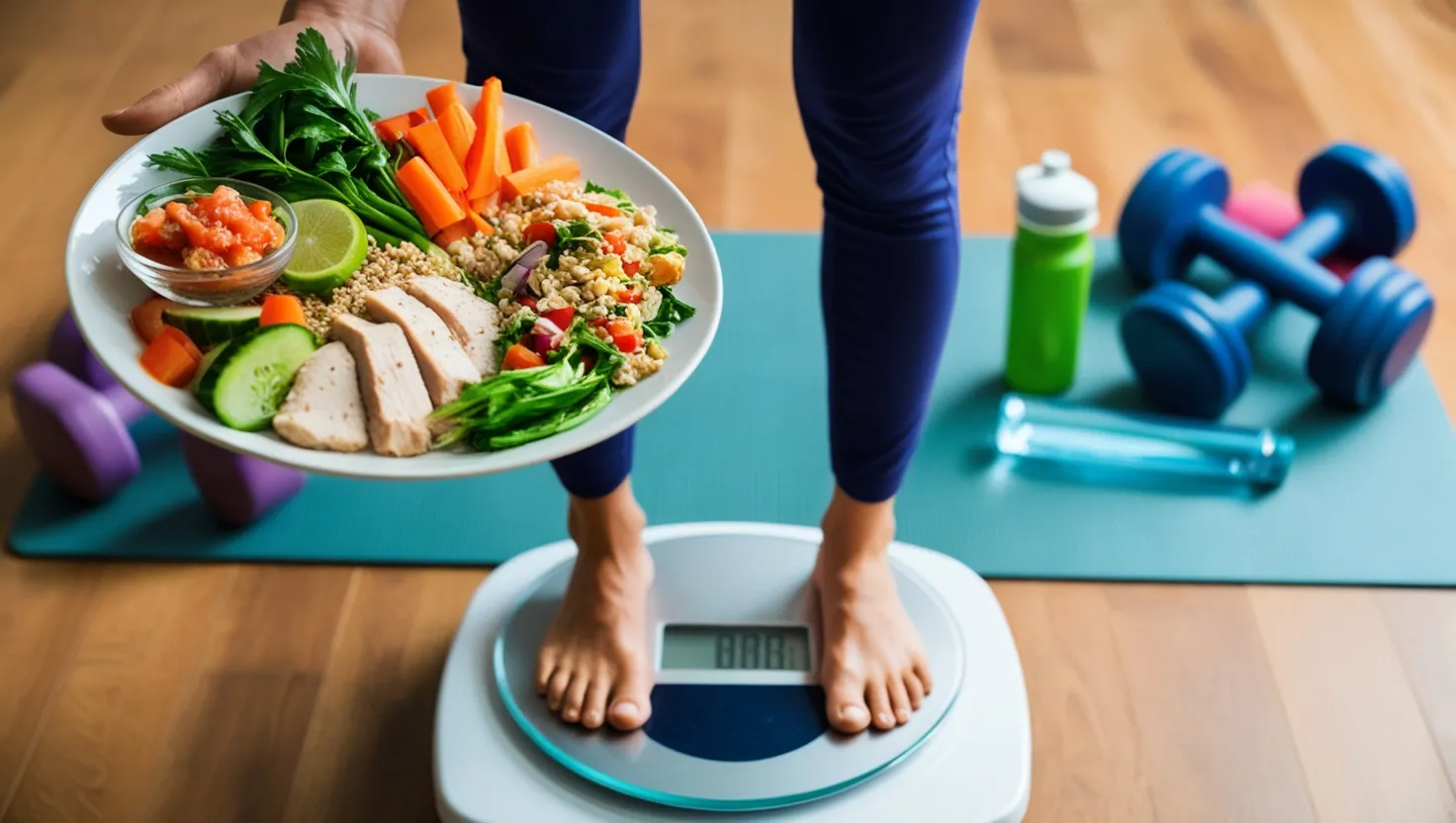Maintaining a healthy weight and staying physically fit are two core components of long-term wellness. However, achieving and sustaining these goals requires more than just periodic workouts or crash diets. True weight management and fitness are about adopting a consistent, nutrient-rich diet alongside an active lifestyle tailored to your personal goals.
Whether you’re looking to lose weight, build muscle, or simply feel more energetic, understanding the role of nutrition and how it interacts with your physical routine is essential. In this guide, we’ll explore how diet influences weight management, the key components of a fitness-friendly eating plan, and practical tips to help you stay on track.
The Connection Between Diet and Weight Management
Your weight is primarily influenced by your calorie intake versus calorie expenditure. When you consume more calories than you burn, you gain weight. When you burn more than you consume, you lose weight. But it’s not just about numbers—the quality of your calories matters too.
Foods rich in nutrients support metabolism, balance hormones, reduce inflammation, and help build muscle. Processed and sugar-heavy foods, on the other hand, can disrupt these systems and lead to weight gain, fatigue, and poor fitness outcomes.
Components of a Balanced Fitness Diet
A fitness-focused diet is not about restriction but about fueling your body with the right nutrients. Here’s what that looks like:
1. Lean Proteins
Protein is vital for building and maintaining muscle, especially if you’re working out regularly. It also helps with satiety and supports weight loss.
Examples:
- Chicken, turkey, lean beef
- Fish and seafood
- Eggs
- Tofu and tempeh
- Legumes (lentils, chickpeas, black beans)
- Greek yogurt and cottage cheese
2. Complex Carbohydrates
Carbs are your body’s main energy source, especially for high-intensity and endurance exercises. Opt for whole, unprocessed sources.
Examples:
- Brown rice
- Quinoa
- Oats
- Sweet potatoes
- Whole grain bread and pasta
- Fruits and vegetables
3. Healthy Fats
Fats are essential for hormone production, nutrient absorption, and long-term satiety. They’re especially important for endurance athletes.
Examples:
- Avocados
- Nuts and seeds
- Olive oil
- Fatty fish (salmon, sardines)
4. Fiber
Fiber improves digestion, stabilizes blood sugar, and helps with weight control by making you feel fuller longer.
Sources:
- Vegetables (leafy greens, broccoli, carrots)
- Fruits (berries, apples, pears)
- Whole grains
- Beans and legumes
5. Hydration
Staying hydrated supports every system in your body, including digestion, circulation, and temperature regulation. It also helps control hunger.
Tips:
- Drink at least 8 cups of water per day
- Increase intake during intense workouts or hot weather
- Avoid sugary drinks
Pre- and Post-Workout Nutrition
Pre-Workout
Eat 30–90 minutes before your workout to fuel performance. Focus on carbs for energy and a bit of protein for endurance.
Good options:
- Banana with peanut butter
- Greek yogurt with berries
- Oatmeal with a scoop of protein powder
- Rice cakes with almond butter
Post-Workout
After your workout, your body needs protein to repair muscles and carbs to replenish energy stores.
Ideal combinations:
- Grilled chicken with quinoa and veggies
- Protein shake with a banana
- Eggs and sweet potatoes
- Cottage cheese with pineapple
Tips for Sustainable Weight Management
1. Avoid Crash Diets
Rapid weight loss is rarely sustainable and can lead to muscle loss, nutrient deficiencies, and rebound weight gain. Aim for gradual, consistent progress.
2. Practice Portion Control
Even healthy foods can lead to weight gain if eaten in excess. Learn to listen to your body’s hunger cues and avoid eating out of boredom.
3. Minimize Processed Foods
Highly processed foods are often high in added sugar, salt, and unhealthy fats—all of which can derail weight management efforts.
4. Eat Mindfully
Slow down and enjoy your food. Eating without distractions helps you recognize when you’re full and promotes better digestion.
5. Track Your Progress
Use a food journal or app to track your intake, workouts, and body measurements. This helps keep you accountable and reveals patterns you can adjust.
Sample One-Day Fitness Diet Plan
Breakfast:
- Oatmeal with almond milk, chia seeds, and sliced banana
- 1 boiled egg
Mid-Morning Snack:
- Greek yogurt with blueberries and a sprinkle of flaxseed
Lunch:
- Grilled salmon over quinoa and mixed greens with olive oil dressing
- Steamed broccoli
Afternoon Snack:
- Apple with almond butter
Dinner:
- Chicken stir-fry with vegetables and brown rice
- Side salad with lemon vinaigrette
Evening Option (if hungry):
- Herbal tea and a small handful of almonds or cottage cheese with sliced cucumber
When to Adjust Your Diet
You might need to tweak your eating plan based on:
- Your goals: Muscle gain requires more calories and protein; fat loss requires a slight calorie deficit.
- Your activity level: More intense or frequent workouts may require more carbohydrates.
- How you feel: Low energy, poor recovery, or increased hunger may signal the need for a change.
Listen to your body and be open to adjusting as needed.
Final Thoughts
Weight management and fitness go hand in hand, and both are best supported by a consistent, balanced diet rich in whole foods. Rather than aiming for perfection, focus on sustainability—fueling your body in a way that helps you perform better, recover faster, and maintain a healthy, happy weight over time.
With the right habits and nutritional foundation, managing your weight and staying fit becomes less of a challenge and more of a natural, rewarding lifestyle.
Would you like a weekly meal plan or grocery list based on this guide?
